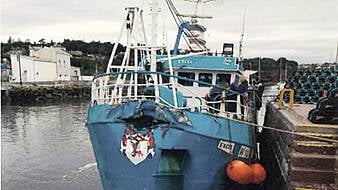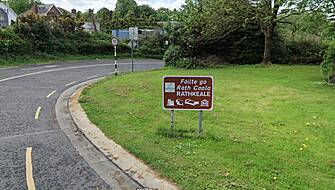The ongoing suspensions of eight gardaí in Limerick, as part of a so-called “corruption” probe led by the Dublin-based Garda National Bureau of Criminal Investigation (GNBCI) has been described in the Dáil as a “witch trial”.
The eight gardaí are suspended since November 8th, 2020, as part of an investigation into alleged squaring away of road traffic offences.
The eight serving members are suspended in relation to alleged “corruption in public office”, however almost a year on, no charges have been brought against any of the eight.
Road traffic offences
A wider strand of the investigation has led to charges being brought against four serving gardaí and a retired senior garda over alleged squaring away of road traffic offences.
The ongoing suspensions of the eight members has lead to widespread fear and confusion among gardaí who are concerned they may be suspended or face criminal charges should they use discretion when dealing with members of the public, argued Fianna Fáil TD Cathal Crowe.
The Clare TD said he believed gardaí who have not been charged with any offences are stressed out that they may be suspended or face charges for exercising discretion, which he argued was a fundamental feature of their training.
Referencing the famous Salem witch trials in colonial Massachusetts in the 1690s, when more than 200 people were accused of practising witchcraft and 20 were executed, Deputy Crowe told the Dáil: “You could almost call the Limerick Garda Division ‘Salem’ at the moment, because there’s a form of witch-trial being going on for the last two years there. Eight members suspended, 60 garda phones confiscated, moral has never been lower.”
“All of this centres around discretion, and I’m sure, like me, we all have a tendency every so often of going a little bit heavy on the accelerator, and you see a blue light, and you pull in. In that moment that a guard pulls you over, they have the power of discretion, which has been a feature of An Garda Síochána, policing by consent; it’s taught, it’s part of the curricular substance in Templemore (Garda Training College) right back since 1922, the foundation of the force.
“It’s part of what (gardaí) learn, discretion is not defined, and therein lies the problem, and what has happened in Limerick over the last two years is that gardaí are told you (that if you) use discretion, you are wrong, and you're suspended.”
Discretion
Arguing that discretion and corruption are not the same, Deputy Crowe said: “We need to move way beyond the model of squaring off a ticket for the Monsignor or the politician or the county hurler — I think everybody agrees with that. But we don't want to be witch-trialling, which has been happening in Limerick over the last two years.”
Mr Crowe, who was speaking during a second stage Dáil debate on the Garda Siochána (Functions and Operational Areas) Bill, said that between 60 and 80 garda mobile phones had been confiscated as part of the probe.
Deputy Crowe said the fundamental principle of policing in Ireland “policing by consent” was being eroded due to rank and file members fearing they can no longer use discretion, and that the investigation was “creating bad will” between gardaí and the public.
“Drew Harris (Garda Commissioner) is a good man, but the model of policing I believe he is seeking to replicate is that which operates in the six counties of Northern Ireland; that is quite different, they drive down roads by night in armoured vehicles; they're armed; it’s very different to the model of policing we have in (southern) Ireland.”
Limerick Independent TD, Richard O’Donoghue, said the eight suspended gardaí had not been replaced.
He said gardaí are taught by management to use what he referred to as an “L7” or “a square” when dealing with “exceptional or hardship circumstances”.
'Hardship cases'
“Is that no longer the case, do gardaí have discretion in hardship cases anymore? Three years have been wasted on investigations of misdemeanours that gardaí were actually trained to do at Templemore. We are now prosecuting gardaí for doing the job they were trained to do. I am not condoning any garda breaking the law outside of that context,” said Deputy O’Donoghue.
Last July, the President of the Garda Representative Association (GRA), Frank Thornton, said gardaí had been offered psychological counselling because of the prolonged investigation.
In a circular sent to the group’s 600 Limerick members, Mr Thornton highlighted the “appalling treatment” of gardaí in the division who he said “have been subjected to what we perceive as a witch-hunt rather than a legitimate investigation”.
“We are all feeling dismayed, disillusioned, and frustrated,” Mr Thornton added.
When asked for comment, Garda Headquarters said that discretion remained “an important facet” in the force’s “long held and understood tradition of policing by consent”.
Being well-known or knowing a guard, of whatever rank, is not a pathway to more favourable treatment
However, commenting generally and not in relation to any specific individual case, Garda HQ said “this exercise of discretion is entirely different from any tendency to show preference”.
It said: “There has been some conflation of these two concepts in public commentary and it is necessary that the important distinction be emphasised. The law binds us all equally, and while there is a proper place for the exercise of discretion in determining the best course of action where an immediate decision is required, being well-known or knowing a guard, of whatever rank, is not a pathway to more favourable treatment.”
“Gardaí are trained to apply the law and deliver policing services in a fair and equitable manner. The application of the law is facilitated by the Garda’s discretionary policing powers underpinned by the Code of Ethics and Garda Decision Making Model.”







